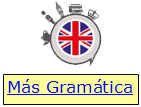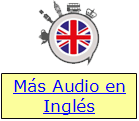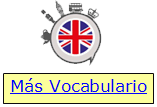|
Listener Feedback:
Say ‘Hi’ to Juan Carlos Alumbreros who listens to us in his car while
he’s driving to work (on his COMMUTE)
Juan Carlos says, thanks a lot for your awesome job to help Spanish
people learn English. Your way is different and very addictive. I love
listening (to) your podcast when I commute to my job, every day.
What do you call a man from Calaluña who doesn’t have a car? CARLES –
CAR Less!
(fallo) Hello, before anything, thank you for amazing work. I’m really
enjoying learning with you.
I have a question, why do some expressions and verbs use ‘up’ at the end.
I don’t know when to use it.
Example: shut up, built up, meet up, drive up, come up, etc… I hope can
help me. Thanks again… Regards (Fallo)
Completion/termination: eat up and drink up, use up, wash up, Shut up! –
“I ended up doing all the work”
Increase: the price has gone up, they’ve put up the price, turn up the
music, please speak up, I need to pump up the tyres on my car. (to pump
up = inflar, hinchar), (to hype up = exagerar, dar bombo a)
Emergence: to pop up, something’s popped up on my screen, I can’t meet
you. Something’s come up, What’s up with you?
Construction, composition: we’ve built up a good relationship with our
advertisers, water is made up of hydrogen and oxygen, (to make up =
maquillarse, reconciliarse), the council are putting up a new bridge.
“put up or shut up!” – Do something or don’t speak
An email from Sonia:
Hi Reza and Craig,
I need your help again. I’d like to know if there is any clue, any trick,
to know exactly when I should use an infinitve form or an ing form.
inglespodcast.com/14 and inglespodcast.com/15
My problem with those direct objects is to know exactly when I should
use them as an infinitive in Spanish.
Actually I’ve just had a problem just few lines above, as I couldn’t
decide between “…to know exactly when to use…” and “…to know exactly
when using…”, so I chose “…to know exactly when I should..”
“….to know when + infinitive” – to know when to go…, to know when to
use…, to know when to say… etc.
I forgot to close the window? I forgot closing the window?
“Yesterday I forgot to close the window.”
“She forgot closing the window when she went on holiday last week.” (She
didn’t have a memory of closing it)
Craig went out and got completely drunk. He doesn’t remember getting
home.
Keep listening (keep + gerund). We’ll be explaining gerunds and
infinitives a lot more in future podcasts.
I also find difficulty in those sentences where in Spanish we use an
infinitive as the complement of the verb TO BE:
Mi intención es ganar: My intention is to win? My intention is winning?
(both sentences sound odd to me)
“Winning is my intention.” and “To win is my intention.” are both
correct. Use the gerund when you’re talking about something in general,
“Smoking may kill you.” Here, smoking is the subject of the sentence.
Can you give me a hand, please?
Thanks in advance! Keep on with this fantastic podcast which helps us so
much!
Best, Sonia
A Question from Alberto (Madrid)
What’s the difference between England, Britain, Great Britain and The
UK.?
We touched on this subject when we spoke about the flags (las banderas)
in episode inglespodcast/34
British and Northern Irish? Reza is British and Northern Irish. Craig is
English and he’s British.
Great Britain is composed of England, Scotland and Wales. There’s more
information about Great Britain on Wikipedia
The United Kingdom is composed of England, Scotland, Wales and Northern
Ireland. There’s more information about The United Kingdom on Wikipedia
Ireland (or The Republic of Ireland) is a separate country. There’s more
information about the country of Ireland on Wikipedia
A Welshman is Welsh and British. A Scotsman is Scottish and British. A
Scottish person can also be called a Scot.
Blighty is a slang word for Britain or England.
American V North American (North American is composed of Canada, the US,
Greenland, Mexico, Guatemala, Cuba, Nicaragua, El Salvador, Costa Rica,
Haiti, Dominican Republic, Honduras, Puerto Rico, Jamaica and more…)
A question from Mara, Valencia
I have a question for you; I listened to a friend saying ‘I have time to
spare’. For me, the meaning of this expression is different from saying
‘I have time to waste’. But he said that is the same.
Is this true? And then could you explain the difference between ‘to
spare time’ and ‘to waste time’?
to waste = malgastar, derrochar. To waste time is to spend it in a
negative way. “I wasted time playing video games all day.”
trainspotting = observación de trenes
“Don’t waste my time!”
“He’s a time-waster.”
spare key
spare batteries
spare bedroom
A comment and some questions from Elisa
What winds me up is when people arrive late to an appointment. People
can be 30 min or an hour late, this drives me crazy!
Reza often keeps Craig waiting, but never too long!
Craig can’t stand people who use kids as an excuse – leave earlier!
Comment: Would be nice to hear your opinions about students now and some
fifteen years ago. Are people better to learn English (better at
learning English/to be good at, bad at, better at, worse at) now than
earlier?
Are they learning quicker? What about grammar, is it any easier for
people to learn or understand it now?
Are people still shy (timido/a) when it comes to talking? What about
pronunciation, has it become better because of the internet and many
voice applications and software?
Reza thinks that it’s easier for hard-working students to progress
because of the extra resources.
Craig and Reza don’t think their job of teaching English has been made
any easier. In fact, technology has perhaps made people less likely to
speak and communicate in English face to face.
Reza is troubled by the use of mobile phones in the classroom.
Too much use of mobile devices may affect the students’ ability to write
notes.
Vocabulary: Asking for directions
Hi Reza and Craig again.
I am John from Buenos Aires.
I am going to travel to California in August. Could you talk about
travel vocabulary?
For example how to ask for some place to arrive by car (How to get to
places by car), how to order in a restaurant, how to shop, etc
Thanks a lot.
I listen to you every day and I am thinking to do (thinking of doing) it
at night while I am sleeping. Bye!
We spoke about travel vocabulary in episode 13
This week asking for directions. Next week and the week after, eating
out and how to shop
We spoke about indirect questions with Nicola in episode 50
Do you know….where the bank is? Do you know how to get to….? Can you
tell me how to get to….,please? (remember to say ‘please’)
Excuse me, can you tell me where the station is, please?
go straight (on) / keep going, turn right, turn left, (take a right/left
– US). It’s the first on the left, it’s on your right, it’s on the right
hand side
Go across the lights (semáforos), roundabout/traffic circle (US) –
rotonda, glorieta
a junction – a place where roads cross
How far is it? How long will it take? How many kilometres is it? Is it (very)
far? Is it nearby/near/close/near here?
Go back on yourself = go back in the direction you originally came from.
Do a U-turn.
Craig and Reza’s Weekly wind-ups (to wind up = annoy, irritate, bother:
fastidiar, disgustar, molestar)
Reza: Civil servants who are always having a coffee break.
Craig: Computer website pop ups.
 *Dispones
de más
PODCAST en inglés publicados en los cuadernos anteriores *Dispones
de más
PODCAST en inglés publicados en los cuadernos anteriores
a los que puedes acceder directamente así como al índice de su
contenido. |
|
|
